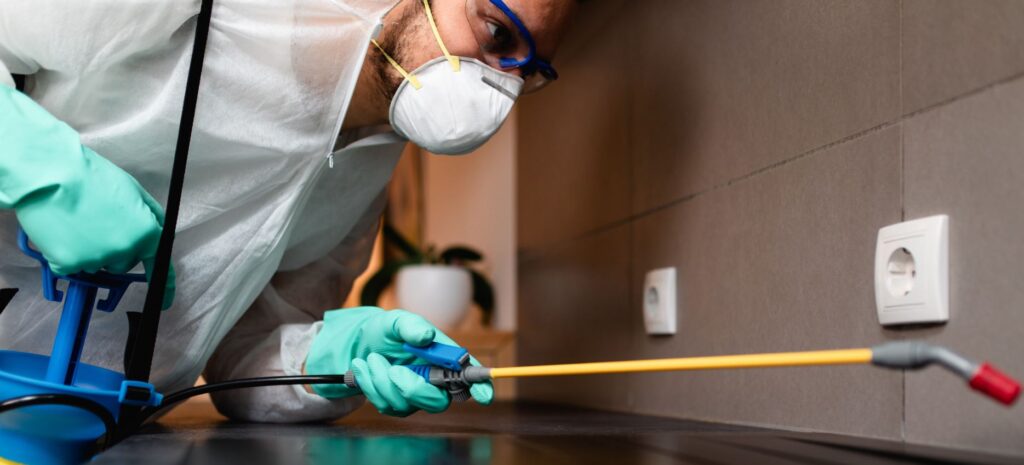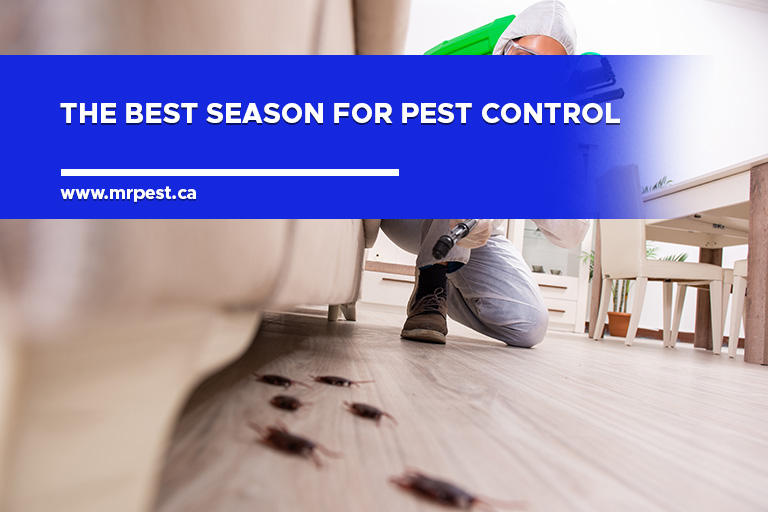Safe and Dependable Pest Control for Lasting Defense
The relevance of dependable and risk-free insect control can not be overstated, especially in a period where ecological concerns are vital. Reliable parasite administration calls for a multifaceted technique that stabilizes eco-friendly integrity with the requirement for reliable insect suppression. By exploring environmentally friendly services and incorporated bug management strategies, homeowners can accomplish enduring security against invasive types while protecting beneficial ecological communities. However, the nuances of these approaches may not be promptly clear, prompting a more detailed examination of the techniques that can bring about lasting insect control end results. What steps can be taken to make sure both safety and security and efficiency in parasite administration?
Comprehending Pest Control Methods
Bug control encompasses a range of techniques targeted at managing and getting rid of unwanted bugs and rodents that can endanger both health and residential property. Comprehending these approaches is important for efficient bug monitoring.
The primary groups of pest control approaches consist of mechanical, organic, and chemical approaches. Mechanical techniques entail physical barriers and catches to avoid pest entry and capture unwanted species. Using displays on windows or using sticky traps can significantly reduce bug populations without introducing dangerous compounds - exterminator coquitlam.

Chemical insect control is usually the most identified approach, using chemicals to eliminate insects. These chemicals can be effective yet need to be made use of with caution to stay clear of unfavorable results on non-target varieties and the setting.
Benefits of Eco-Friendly Solutions
Just how can environment-friendly services transform parasite control methods? The fostering of environment-friendly bug control techniques provides various advantages, significantly boosting the performance and security of insect management (exterminator coquitlam). These solutions utilize all-natural components, decreasing the dependence on hazardous chemicals that can posture risks to human wellness and the atmosphere. This change not only protects families and animals yet additionally reduces the possibility for soil and water contamination.

An additional advantage is the favorable influence on local biodiversity. Eco-friendly remedies are developed to target certain bugs while preserving advantageous bugs and wild animals, promoting a well balanced ecological community. This method straightens with the expanding customer demand for lasting practices, enhancing the reputation of parasite control carriers.
Integrated Parasite Monitoring Strategies
The implementation of environmentally friendly solutions normally results in the adoption of Integrated Parasite Management (IPM) methods, which even more boost insect control efficiency. IPM is an all natural strategy that incorporates several tactics to take care of parasite populations while lessening ecological influence. This method highlights the usage of organic, cultural, mechanical, and chemical controls, ensuring a sustainable and well balanced technique of parasite management.
One fundamental facet of IPM termite identification is the complete analysis of bug task and environmental problems. By monitoring bug populaces and recognizing their life cycles, practitioners can execute targeted treatments that interrupt the pest's habitat or lifecycle, reducing dependence on chemical pesticides. In addition, social techniques such as plant turning and habitat manipulation can considerably diminish parasite facility and recreation.
One more crucial component is making use of organic control agents, such as advantageous insects or microorganisms, which can normally reduce pest populaces. When chemical applications are necessary, IPM focuses on using low-risk pesticides and applies them precisely, lessening direct exposure to non-target organisms and humans.
Integrating IPM approaches not only enhances pest control effectiveness yet also advertises a much safer ecological community, aligning with the growing demand for sustainable methods in insect monitoring.
Safe Practices for Homeowners
Comprehending the relevance of risk-free practices in bug control can equip homeowners to properly manage bug concerns while securing their health and wellness and the environment. Applying precautionary steps and non-toxic approaches is vital in decreasing exposure to damaging chemicals.
Homeowners must first analyze their atmosphere for problems that draw in pests, such as standing food, water, and clutter waste. Consistently cleaning and securing entry factors can hinder parasites from invading the home. Using natural deterrents, such as important oils or diatomaceous planet, can give effective alternatives to chemical pesticides.
When chemical therapies are necessary, house owners should decide for products that are especially labeled as secure for property use. It is important to adhere to application standards meticulously to stay clear of overexposure. content Making use of targeted treatments in areas where parasites are identified, instead than blanket spraying, can significantly minimize chemical use.
Lastly, preserving open communication with bug control specialists is essential. House owners ought to make inquiries concerning the safety of items made use of and request environmentally friendly options whenever possible. By taking on these secure practices, house owners can produce a much healthier living environment while effectively taking care of pest issues.

Tips for Long-Term Protection
Establishing an insect management strategy that highlights long-lasting defense can significantly boost the performance of the safe techniques formerly talked about. To achieve this, property owners ought to implement regular examinations of their home, concentrating on concealed areas such as attic rooms, basements, and crawl areas. Early detection of parasite activity is critical in preventing invasions from holding.
Additionally, maintaining a tidy setting is essential. This includes appropriate food storage space, without delay cleaning up spills, and consistently throwing away trash. These methods lower attractants that attract parasites into the home. Moreover, securing entrance points, such as splits around windows and doors, can effectively block prospective pest accessibility.
Landscape design needs to additionally be taken into consideration; maintaining plants trimmed and keeping a distance in between greenery and the home lessens concealing areas for pests. Using all-natural deterrents, such as vital oils or diatomaceous earth, can additionally discourage problems without turning to harsh chemicals.
Last but not least, teaming up with an expert bug control service for periodic analyses can give an added layer of safety and security. These experts can supply tailored recommendations and advanced treatments, making sure that your home stays secured versus pests in the long-term.
Final Thought
Finally, dependable and secure insect control requires a multifaceted approach that emphasizes eco-friendly techniques and integrated bug monitoring. By applying all-natural deterrents, carrying out normal assessments, and preserving appropriate cleanliness, building owners can considerably lower pest populaces while securing advantageous pests and the setting. Partnership with professional insect control solutions boosts the performance of these techniques, making sure tailored solutions that offer long-term security and assurance versus future invasions.
Reliable bug management requires a complex strategy that balances environmental stability with the demand for effective parasite suppression. The fostering of green pest control approaches offers many benefits, substantially improving the effectiveness and safety of bug administration.The execution of environment-friendly services naturally leads to the adoption of Integrated Insect Administration (IPM) strategies, which additionally improve parasite control efficacy. exterminator coquitlam. By keeping an eye on pest populations and identifying their life cycles, specialists can carry out targeted treatments that disrupt the parasite's environment or lifecycle, reducing dependence on chemical more pesticides.In final thought, dependable and risk-free bug control requires a complex strategy that stresses green methods and incorporated insect administration